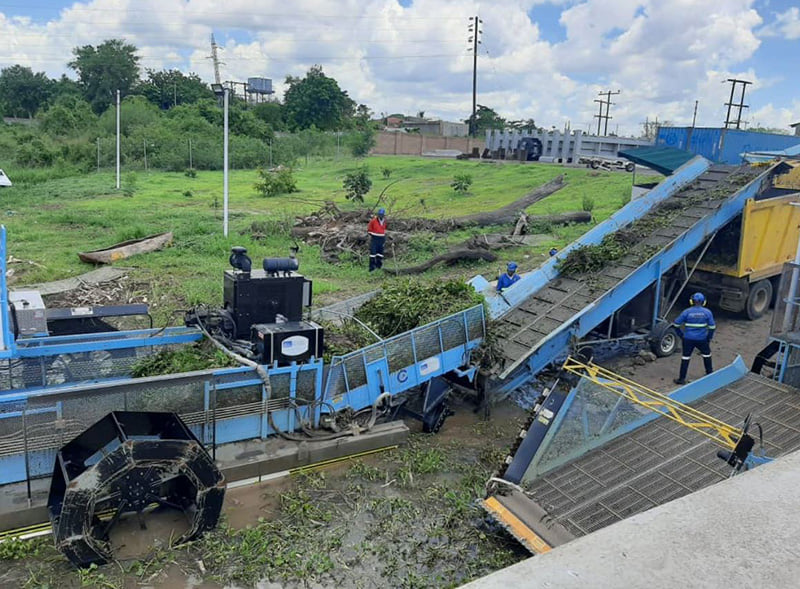
Environmental degradation in the Shire River catchment area has cost Electricity Generation Company (Egenco) about K10 billion to remove debris and silt in dams at its Nkula and Tedzani power plants in the past three years.
Speaking on the sidelines of a tree- planting exercise along the Lirangwe River in Blantyre on Friday, Egenco chief executive officer William Liabunya said wanton cutting down of trees upstream has resulted in loss of vegetative cover which leads to an increase in debris flowing into the dams downstream.

He said: “We have bare hills and river banks, we have a lot of silt that goes into the rivers which ends up in our dams. Some of that silt goes into the machines and disturbs power generation. For us to reclaim those dams, we have spent almost K10 billion.”
Liabunya said at the rate the siltation was happening in the dams, the company could have lost the infrastructure to debris in the next five to 10 years.
In January 2015, Malawi lost 100 megawatts (MW) of its 351MW installed generation capacity after flood water damaged intake screens at Nkula Hydro Power Station. The energy crisis lasted close to two weeks.
The 2019 United Nations’ (UN) Intergovernmental Panel on Climate Change (IPCC) report warned that global warming, if unchecked, could increase the frequency and intensity of floods.
Minister of Energy Newton Kambala, who graced the event, said planting of trees along the river banks is a long-term solution to control siltation.
He said Egenco has put in place other short-term measures to keep siltation in check.
Said Kambala: “We currently have machines called dredgers at Kapichira and Nkula power stations which we use to remove silt. They help us to increase the water holding capacity of our intake areas.”
He said there is a need for community awareness on the importance of not cutting trees unnecessarily.
Speaking on behalf of the community, Traditional Authority Chigaru pledged to take care of the 3 000 tree seedlings that Egenco and the community planted.
The Lirangwe River, which flows into the Shire, is one of the rivers that deposits its debris into the country’s longest river.
Source: The Nation_March 30, 2021_By Andrew Mtupanyama-Staff Writer
